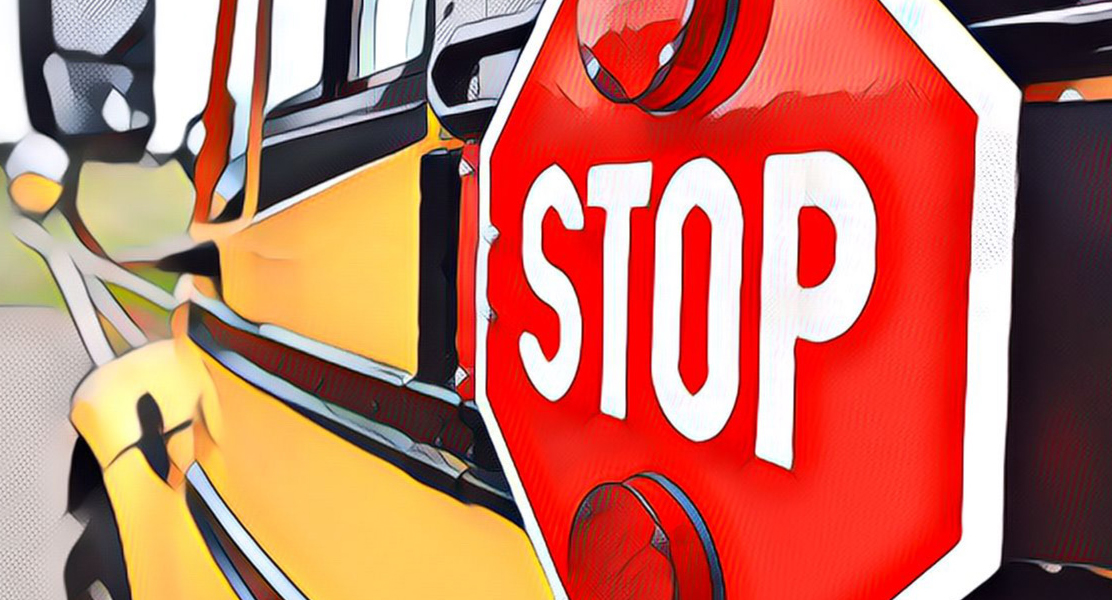Chaplains, faith groups, and civil rights organizations oppose public school chaplain programs
A growing number of states are considering legislation to allow official school clergy

FOR IMMEDIATE RELEASE
Media Contacts: Karlee Marshall, BJC | [email protected]; Logan Bayroff, Interfaith Alliance | [email protected]; Laura Frank, Religious Action Center of Reform Judaism | [email protected]; ACLU Media, [email protected] ; Amit Pal, Freedom From Religion Foundation |[email protected]; Melina Cohen, American Atheists | [email protected]; Liz Hayes, Americans United | [email protected]
WASHINGTON – In three open letters to state lawmakers, more than 200 individual chaplains [updated to be 280+ chaplains in May 2024], along with dozens of faith groups and civil rights organizations, are speaking out today against a wave of proposed state legislation seeking to install chaplains in public schools across the country.
This year alone, bills in at least 14 states have proposed allowing public schools to employ (or accept as volunteers) chaplains to provide student-support services, including counseling and other mental-health assistance. The legislation follows a similar measure passed in Texas last year.
The open letters highlight the dangers of allowing chaplains, who are typically not trained or certified to provide educational or mental-health services to youth, to assume the responsibilities of qualified professional school counselors and other school staff. Students are likely to receive inadequate mental-health support that, in some cases, may be affirmatively harmful.
In addition, allowing chaplains in public schools would violate students’ and families’ religious-freedom rights by inevitably leading to religious coercion and evangelizing of students. As explained in the chaplains’ letter, chaplains are trained to provide religious counseling to people in spiritual need. Not only are they unqualified to provide student mental-health services, but chaplains typically do not have the necessary experience or training to ensure that they adhere to schools’ educational mandates and avoid veering into proselytizing and other promotion of religion, which is unconstitutional when undertaken by school employees or volunteers.
To date, school-chaplain bills have been introduced in 14 states in 2024, including Alabama, Florida, Georgia, Indiana, Iowa, Kansas, Louisiana (pre-filed), Maryland, Mississippi, Missouri, Nebraska, Ohio, Oklahoma, and Utah. The three open letters released today–one by a group of more than 200 individual chaplains, another signed by 38 faith groups, and the third endorsed by 34 civil rights organizations–urge state legislators to protect the integrity of public schools, as well as students’ religious freedom and mental well-being, by rejecting proposed chaplaincy programs.
“As trained chaplains, we strongly caution against the government assertion of authority for the spiritual development and formation of our public school children,” states the letter from more than 200 individual chaplains in 40 states. “Families and religious institutions–not public school officials–should direct the religious education of our children.”
“Government-sanctioned chaplains may be permissible in some limited settings—but not in our public schools,” the 38 faith groups write. “For example, our government has provided chaplains in the military, prisons, and hospitals—places where chaplains are needed to accommodate the religious-exercise rights of people who would otherwise not be able to access religious services. Public school children face no such barriers.”
“All should feel welcome in public schools,” write the 34 civil rights organizations. “Even well-intentioned chaplain policies will undermine this fundamental premise of our public-education system and violate our longstanding First Amendment principles.”
“Houses of worship and families are best equipped to provide religious education and spiritual guidance for children and youth,” said Holly Hollman, general counsel and associate executive director of BJC (Baptist Joint Committee for Religious Liberty). “Efforts to put religious leaders in official roles in the public schools invade a realm of religious freedom that is properly protected by the separation of the institutions of church and state. Families and the religious decisions they make in raising children are properly shaped by congregations chosen by families and not the government.”
“In America, Jews and other religious minorities have been uniquely free, in law and in practice, to practice our faith and to organize our communal lives without government interference,” said Rabbi Jonah Pesner, Director of the Religious Action Center of Reform Judaism. “These school chaplain bills, which are in direct violation of the principle of separation of church and state enshrined in our constitution, are a threat to our collective religious liberty. It is our obligation as religious leaders to strongly condemn the chaplain bills and work together to ensure our children do not face any kind of religious proselytizing or persecution in our public schools.”
“As a minister, I know that chaplains can play an appropriate and important role in the lives of many families – but their place is not in our public schools,” said Rev. Paul Brandeis Raushenbush, President and CEO of Interfaith Alliance. “Putting chaplains in public schools erodes the separation of religion and government and opens our students up to potential religious coercion. That’s why this broad and diverse coalition is standing together to challenge these dangerous bills wherever they are introduced across the country.”
“Our nation’s students need evidence-based services from qualified mental health professionals – not religious instruction, recruitment, and coercion,” said Nick Fish, President of American Atheists. “Without sufficient safeguards in place for students’ wellbeing and constitutional rights, this legislation could open the door to discrimination against students the chaplains deem objectionable, including those who are nonreligious.”
“Schools should not be swapping mental health professionals for unlicensed outside adults,” said Freedom From Religion Foundation Co-President Annie Laurie Gaylor. “Students are entitled to qualified help for mental health support or suicide prevention.”
“The constitutional promise of church-state separation requires that students and parents – not public school officials, state legislatures or government-imposed religious leaders – get to make their own decisions about religion,” said Rachel Laser, president and CEO of Americans United for Separation of Church and State. “Public schools should never force any particular religion on students. In order to protect the religious freedom of all students and families, legislators should ensure that certified school counselors – not chaplains – continue to support our students. In America, there shouldn’t be any doubt that public schools welcome and are inclusive of all students. Public schools are not Sunday schools.”
“The First Amendment protects the right of all students to attend public schools without the risk of school staff evangelizing them or imposing religion in any other way,” said Heather L. Weaver, Senior Staff Attorney for the ACLU’s Program on Freedom of Religion and Belief. “Allowing chaplains on campus will undermine this fundamental constitutional principle and make our public schools unwelcoming environments for students who may hold different religious beliefs and values than their school’s official clergy.”
About BJC
BJC (Baptist Joint Committee for Religious Liberty) is an 88-year-old religiously based organization working to defend faith freedom for all and protect the institutional separation of church and state in the historic Baptist tradition. BJC is the home of the Christians Against Christian Nationalism campaign.
About ACLU
For more than 100 years, the ACLU has worked in courts, legislatures, and communities to protect the constitutional rights of all people, including First Amendment rights. With a nationwide network of offices and millions of members and supporters, the ACLU takes on the toughest civil liberties fights in pursuit of liberty and justice for all.
About American Atheists
American Atheists is a national civil rights organization that, since 1963, has strived to achieve religious equality for all Americans by defending what Thomas Jefferson called the “wall of separation” between government and religion. We envision a pluralistic society where atheists and nonreligious people can participate fully without discrimination or stigma and where all people are guaranteed equality. We work to protect civil rights, advance political equality, achieve social inclusion, and empower atheists and other nonreligious people through advocacy, education, and community building.
About Americans United
Americans United is a religious freedom advocacy organization based in Washington, D.C. Founded in 1947, AU educates Americans about the importance of church-state separation in safeguarding religious freedom. Learn more at www.au.org.
About Freedom From Religion Foundation
The Freedom From Religion Foundation (www.ffrf.org) is a national nonprofit organization with 40,000 members across the country. It protects the constitutional separation between state and church and educates about nontheism.
About Interfaith Alliance
Interfaith Alliance is a network of people of diverse faiths and beliefs from across the country working together to build a resilient democracy and fulfill America’s promise of religious freedom and civil rights not just for some, but for all. The organization mobilizes powerful coalitions to challenge Christian nationalism and religious extremism, while fostering a better understanding of the healthy boundaries between religion and government.
About the Religious Action Center of Reform Judaism
For more than six decades, the Religious Action Center of Reform Judaism (the RAC) has worked to educate, inspire, and mobilize the Reform Jewish community to advocate for social justice. We mobilize around federal, state, provincial, and local legislation on more than 70 pressing socioeconomic issues, including gun violence prevention, immigration, reproductive rights, and criminal justice reform.
As a joint instrumentality of the Union for Reform Judaism and the Central Conference of American Rabbis, we represent the values of the largest and most diverse Jewish Movement in North America to governments at all levels.
###






